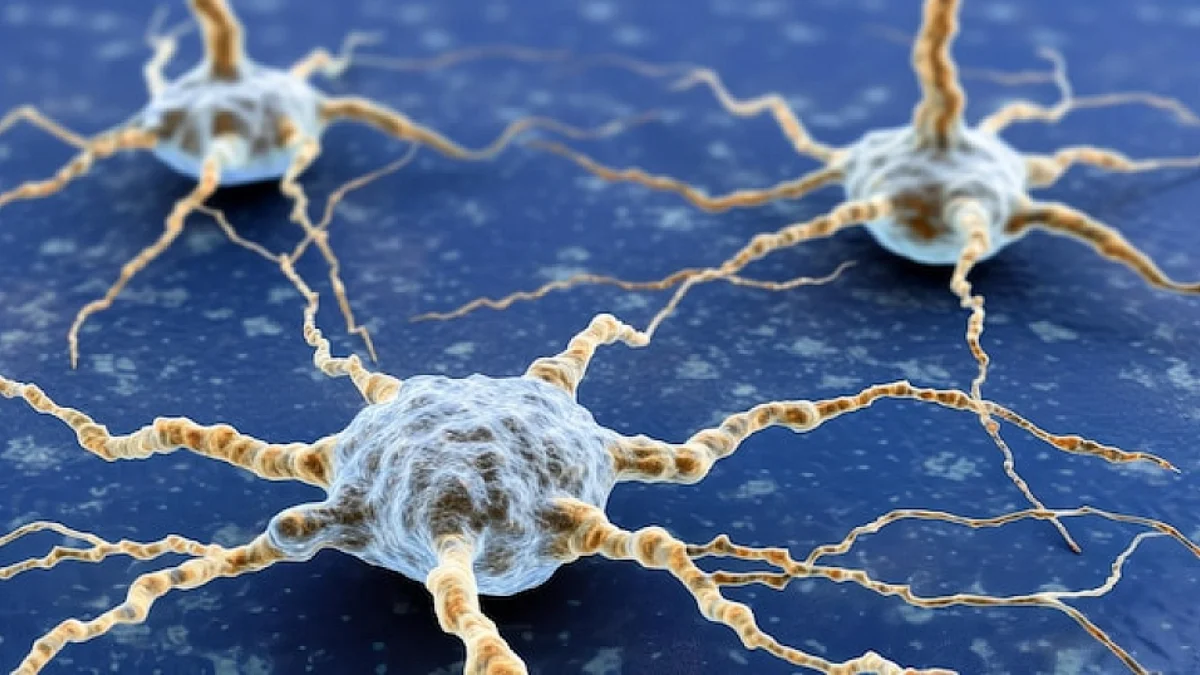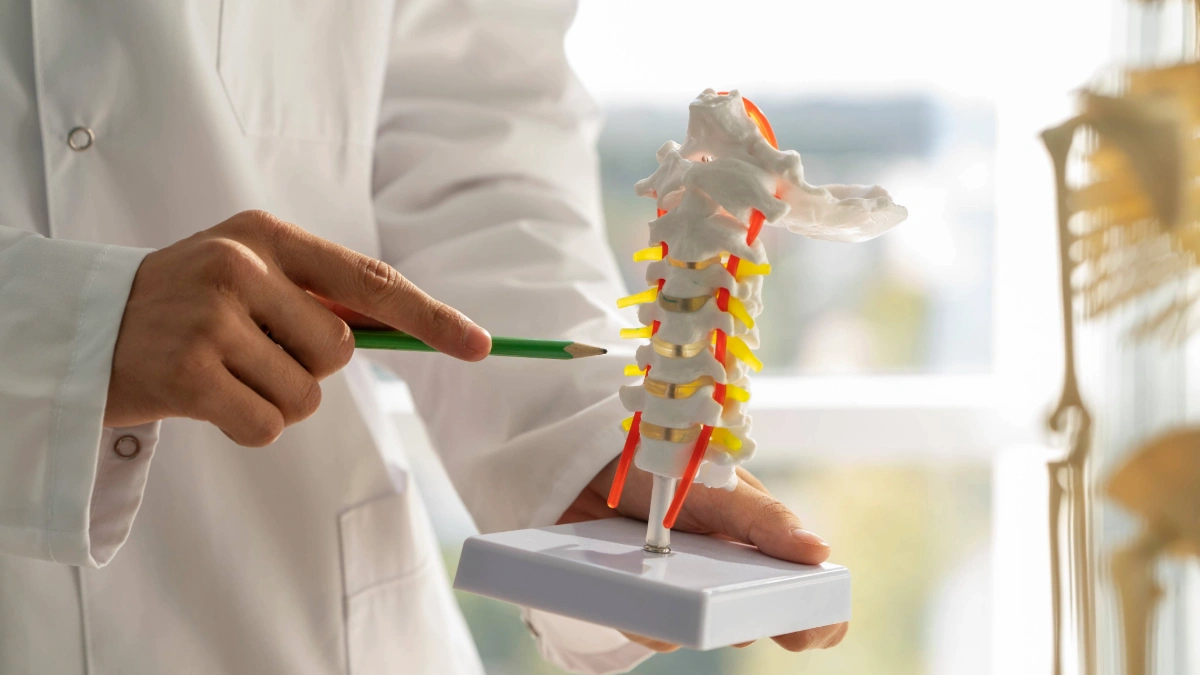Neuroendocrine tumour treatment in Turkey has emerged as a beacon of hope for many patients around the globe, primarily due to state-of-the-art medical facilities and cost-effective care. Neuroendocrine tumours (NETs) are rare and can develop in various organs. They impact the neuroendocrine cells that release hormones into the bloodstream, with most of them being malignant. Understanding the complexities of neuroendocrine tumours involves recognizing their types, symptoms, causes, and treatment options that are meticulously carried out in Turkey’s medical institutions.
What is a Neuroendocrine Tumor (NET)?
Neuroendocrine tumours are a diverse set of uncommon neoplasms originating from neuroendocrine cells, combining traits of both nerve cells and hormone-producing endocrine cells. These tumours can deceptively mimic symptoms of less severe conditions due to their varying aggressive nature. The symptoms of neuroendocrine cancer, such as severe fatigue, organ dysfunction, and intense neuroendocrine cancer back pain, can be particularly distressing.
Types of Neuroendocrine Tumors
NETs are classified based on hormone release: Functional NETs cause hormone-related symptoms, while non-functional ones can cause symptoms by impacting organs. The most prevalent types include gastrointestinal neuroendocrine tumours (GI-NETs), lung neuroendocrine tumours, and pancreatic neuroendocrine tumours (P-NETs). Less frequently, NETs may originate in the thyroid, parathyroid, pituitary, adrenal glands, and thymus.
How Common are Neuroendocrine Tumors?
Globally affecting about 6 people in 100,000, neuroendocrine tumours have seen a rise in diagnoses due to advances in diagnostic techniques. While NETs can develop at any age, they are predominantly diagnosed in individuals aged between 50 and 60.
Symptoms and Causes
Neuroendocrine tumours often remain asymptomatic until they significantly impact an organ, causing varied symptoms such as fatigue, stomach pain, or respiratory issues. The exact cause of NETs remains unclear, although they are linked to rare inherited syndromes involving gene mutations.
Risk Factors
Certain genetic conditions like multiple endocrine neoplasia (MEN), Von Hippel-Lindau syndrome, and neurofibromatosis type 1 significantly elevate the risk of developing NETs. Detailed family history and genetic counselling form part of comprehensive care in Turkey.
Diagnosing Neuroendocrine Tumours
In Turkey, diagnosing NETs involves extensive blood and urine tests, imaging scans like CT, MRI, PET, and specialized octreotide scans, coupled with biopsy procedures. These techniques ensure precise detection and staging of the tumour, aiding in the formulation of an effective treatment plan.
Treatment for Neuroendocrine Tumours
The treatment of neuroendocrine tumours in Turkey is tailored based on the tumour’s location, stage, and patient health, often involving surgery to excise the tumour, especially when it has not metastasized. Non-surgical options include somatostatin analogues to manage hormone overproduction, chemotherapy, radiotherapy, and advanced techniques like radiofrequency ablation. Targeted drug therapies and peptide receptor radionuclide therapy (PRRT), particularly Lutathera, are also employed for advanced cases. While some patients inquire about “how bad is neuroendocrine cancer” or “what is the best treatment for neuroendocrine cancer,” treatment in Turkey covers options tailored to the individual.
Staging Neuroendocrine Tumors
Staging in Turkey adheres to internationally recognized systems, such as the TNM system (Tumor, Node, Metastasis), which classifies NETs based on the size and location of the primary tumour (T), the involvement of lymph nodes (N), and the presence of distant metastasis (M). However, the specific staging criteria can vary based on the primary location of the NET. For instance, a pancreatic NET will have a different staging system compared to a gastrointestinal NET. In Turkey, specialists assess these factors to assign a precise stage (usually I-IV, with higher numbers indicating more advanced disease), which influences the subsequent treatment strategy.
- Stage I: Typically indicates a localized tumour without lymph node involvement or distant metastasis. Treatment often involves surgical resection, aiming for the complete removal of the tumour and surrounding tissue.
- Stage II. Describes a larger primary tumour or local invasion into adjacent tissues, still without lymph node involvement or distant metastasis. Surgical resection is often considered, supplemented by adjuvant therapies in some cases.
- Stage III: This stage suggests lymph node involvement or local spread to nearby organs. Surgical resection may still be an option but is often combined with systemic therapies like chemotherapy or targeted therapy.
- Stage IV: Represents metastatic disease, with cancer spread to distant sites like the liver, bones, or lungs. Treatment typically focuses on controlling the cancer’s progression and managing symptoms. Systemic therapies, including PRRT, chemotherapy, and targeted agents, play a central role. Death from neuroendocrine cancer often occurs during this stage when symptoms become increasingly difficult to control.
Advanced Diagnostic Procedures in Turkey
Turkey’s advanced healthcare infrastructure offers a wide array of diagnostic procedures, ensuring early and accurate detection of NETs. These procedures include:
- Imaging Techniques. Sophisticated imaging technologies such as computed tomography (CT) scans, magnetic resonance imaging (MRI), and positron emission tomography (PET) scans with somatostatin receptor scintigraphy (octreotide scan) are routinely used to visualize the tumour, determine its size, location, and extent of spread. In Turkey, access to state-of-the-art imaging technology ensures precise assessment.
- Biopsy. Tissue samples are obtained through various methods, including endoscopic ultrasound-guided fine-needle aspiration (EUS-FNA) for lesions in the pancreas or gastrointestinal tract, or through bronchoscopy for lung lesions. Pathological examination of the tissue determines the tumour’s grade (differentiation) and molecular characteristics, further guiding treatment decisions. Turkey boasts skilled pathologists with expertise in diagnosing NETs.
- Hormonal Assays: Blood and urine tests measure hormone levels, which are essential for identifying functional NETs that produce excessive amounts of hormones like serotonin, gastrin, or insulin. In Turkey, highly accurate and sensitive hormone assays are available for precise diagnosis.
Treatment Strategies for Neuroendocrine Cancers in Turkey
Treatment options for NETs in Turkey are determined by the tumour’s stage, grade, location, and the patient’s overall health. These can include:
- Surgery: Surgical resection is often the primary treatment for localized and regionally advanced NETs. Turkey’s skilled surgeons employ minimally invasive surgical techniques wherever possible, minimizing complications and reducing recovery times.
- Systemic Therapy: Chemotherapy, targeted therapy, and PRRT are frequently utilized for advanced or metastatic NETs. Turkey offers access to a wide range of approved and investigational therapies, ensuring patients benefit from the latest advancements in oncology.
- Chemotherapy. Used to kill rapidly dividing cancer cells, but it is often not the first line of treatment for NETs due to their slower growth rate.
- Targeted Therapy. Focuses on specific molecules or pathways crucial for tumour growth. Drugs like everolimus and sunitinib are useful for targeting mTOR and VEGF pathways respectively. These impact tumour cell proliferation and blood supply.
- Peptide Receptor Radionuclide Therapy (PRRT). A specialized form of radiotherapy using radiolabeled somatostatin analogues that target and deliver radiation directly to NET cells. This procedure offers targeted radiation without extensive damage to healthy tissues.
- Other Treatments. Depending on the specific circumstances, other modalities such as embolization (blocking the blood supply to the tumour), radiofrequency ablation (using heat to destroy tumour cells), and radiation therapy may also be employed. Turkey’s healthcare facilities are equipped with cutting-edge technology to administer these treatments effectively.
Conclusion
In conclusion, neuroendocrine tumour treatment guidelines in Turkey offer comprehensive medical care, integrating cutting-edge technologies and expert healthcare professionals. Avicenna International Hospital stands at the forefront of delivering such exceptional care, ensuring patient-centric treatment plans.
There’s no single “best” place; the ideal location depends on individual needs and tumour characteristics. Centres with experienced multidisciplinary teams and advanced technology are preferable.
Turkey offers modern facilities and skilled healthcare professionals, making it a viable option for some. However, the best location depends on individual needs and the specific cancer type.
There isn’t one single “new” treatment. Ongoing research focuses on improving existing therapies (like PRRT and targeted therapies) and developing novel agents.







